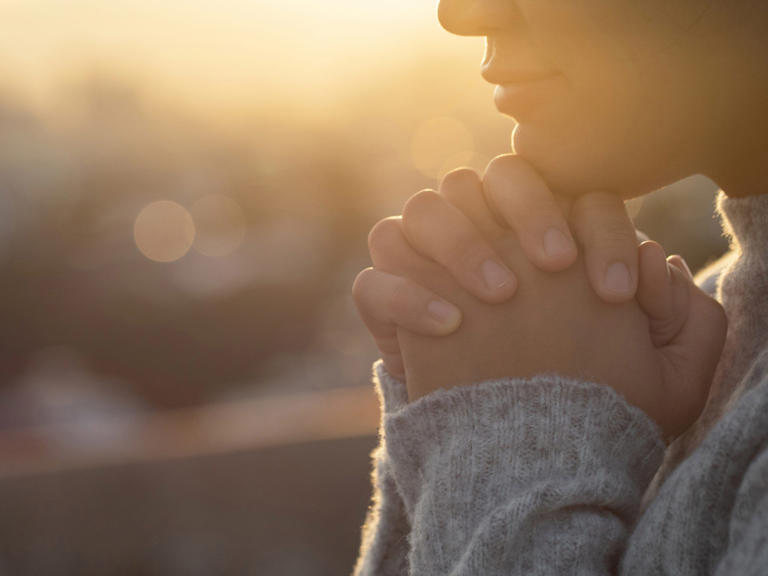Story by Bryan Passifiume •

Many new immigrants to Canada hold deeper religious beliefs than those born in this country.© Provided by National Post
Newcomers to Canada tend to be more religious than their natural-born counterparts, a new study suggests.
The study, released Thursday by think tank Cardus, suggests many new immigrants to Canada hold deeper religious beliefs than those born in this country, attend religious services more often, and say those in public positions should be free to integrate their faith into their words and actions.
“W e’re now a nticipating about 1.5 million new immigrants coming into the country by 2025,” said Rev. Dr. Andrew Bennett, Cardus’ faith communities program director.
“I f you look at the the data for new immigrants, disproportionately they’re coming from countries where religion is a much more public r eality than in most western democracies.”
The report, Bennett said, suggests that religion plays a larger role of in the lives of newcomers compared to those born in Canada.
“New immigrants are more likely to express their religion publicly than non-immigrant Canadians,” he said. “ They’re more likely to attend religious services, t hey’re more likely to desire to have their children educated a ccording to their religious tradition.”
Data published by Immigration, Refugees and Citizenship Canada points to India as this country’s top source of immigrants in 2022, with 118,095 new people arriving from that nation last year.
That was followed by China (31,815), Afghanistan (28,735), Nigeria (22,085) and the Philippines (22,070).
Rounding out the top 10 were France, Pakistan, Iran, the United States and Syria.
The government’s 2023-2025 immigration plan, which was released last November , aims to bestow permanent residency status upon 465,000 new immigrants in 2023, 485,000 in 2024 and an even 500,000 in 2025.
The Cardus report, which used survey data gathered in partnership with the Angus Reid Institute, focused on the differences between contemporary Canadians’ religious beliefs and those of newcomers, and how recent arrivals view the role of faith in everyday life in Canada.
The study’s authors used the poll’s responses to drill down the results into a “spectrum of spirituality” index — classifying respondents into four categories: those who are religiously committed, privately faithful, spiritually uncertain and non-religious.
Among those who consider themselves “religiously committed,” only 14 per cent were born in Canada, while 28 per cent were born outside of the country.
Those who say they are “privately faithful” were a bit more evenly spread — 18 per cent of natural-born Canadians compared to 22 per cent of those born outside of Canada. Nearly half of those born in Canada self-identify as “spiritually uncertain,” compared to 36 per cent of those born elsewhere.
For those who consider themselves non-religious, 15 per cent of foreign-born Canadian residents fell into that category compared to 20 per cent of Canadian-born citizens.
As for those who say they believe in a higher power, 72 per cent of Canadian immigrants say they believe in God, compared to 64 per cent of non-immigrant Canadian citizens.
While data suggests most Canadians consider passing their religious beliefs on to their children to be important, foreign-born Canadians tend to hold this view more frequently than those born here.
A little over a quarter of those who strongly agree with the importance of teaching religion to their children were born outside of Canada, compared to 18 per cent of those born here.
Of those who strongly disagreed, 20 per cent were born in Canada compared to 16 per cent who weren’t.
Immigrants are also more likely to read sacred texts such as the Bible, Adi Granth or Qu’ran — around 20 per cent of immigrants say they consult their holy books between every day or a few times per week, a three-fold increase compared to Canada-born citizens who hold the same beliefs.
Just under 60 per cent of Canadian-born respondents say they never read sacred texts, compared to 36 per cent of those born outside of the country.
A growing number of foreign-born residents also see more importance in public figures integrating their faith into their work.
When asked if Canadians who hold public office should feel free to both speak and act based on their religious beliefs, 44 per cent of respondents who agreed with that sentiment were born outside of Canada, compared to 33 per cent who were born in Canada.
Maintaining a firm separation between church and state is a sentiment shared by 67 per cent of respondents born in Canada, while 56 per cent of those born outside of Canada agreed.
Canada’s ambitious immigration targets are sparking concern over the strain these new residents will put on our country’s already stretched infrastructure.
“The population (growth) is positive, but our infrastructure has to catch up and has to be able to keep pace, or else all of the types of frustrations and issues that we’re seeing today are only going to be magnified,” University of Toronto’s School of Cities’ Matti Siemiatycki told National Post in December.
No comments:
Post a Comment